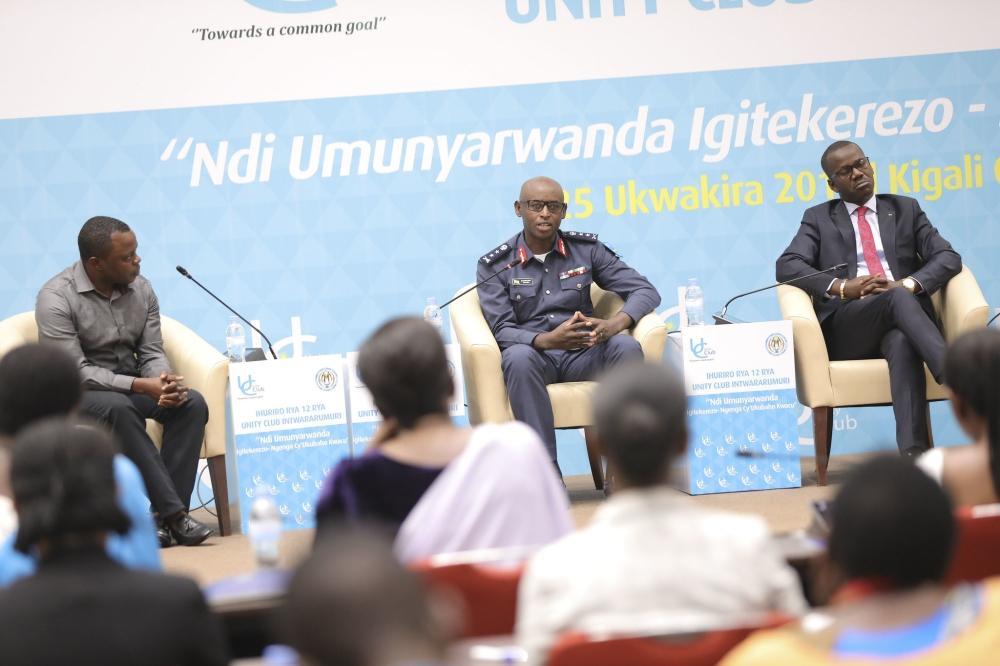Bob Gakire
Africa-Press – Rwanda. Kwibohora (‘to liberate’ in Kinyarwanda) symbolizes both the end of the 1994 Genocide against the Tutsi and the beginning of Rwanda’s journey toward recovery and rebuilding. This concept embodies the resilience of the Rwandan people, emphasizing the importance of physical, emotional, and social healing through unity and reconciliation.
To facilitate this process, Rwanda adopted decentralized governance in the late 1990s as a central part of its development strategy, empowering local governments and communities to enhance decision-making and resource allocation. This approach aims to improve accountability, inclusivity, and local initiatives, reflecting Rwanda’s commitment to fostering unity and collaboration while addressing its tragic past and building a resilient future based on shared responsibility and collective growth.
Rwanda’s decentralization policy post-liberation has enhanced local governance, improved service delivery, and fostered community participation in decision-making, contributing to national development and social cohesion. Here’s an overview of its impact.
Promotion of unity and reconciliation
Kwibohora has significantly contributed to the promotion of unity and reconciliation in Rwanda by fostering a collective memory of resilience and healing among its citizens. Through various initiatives, including community dialogues, memorials, and educational programmes, Kwibohora encourages Rwandans to reflect on their past, acknowledge the atrocities, and work towards a shared future. This focus on reconciliation has helped bridge ethnic divides, promote national identity, and cultivate a spirit of forgiveness, ultimately aiding in the nation’s journey toward sustainable peace and development.
Improving citizen participation
The expansion of platforms for citizen participation has enhanced inclusivity and empowerment, leading to over 80 per cent participation in forums and problem-solving activities, up from 65.63 per cent in 2018. The Governance & Decentralisation sector has played a key role in mobilizing citizens, fostering community involvement in development, and promoting patriotism and social accountability.
Local Government entities have significantly contributed by encouraging agricultural production, improving education, and enhancing human security through initiatives like providing shelter for vulnerable households and addressing malnutrition. Infrastructure development, such as classrooms and health posts, has benefited from communal efforts (Umuganda), while community-based health insurance has bolstered primary health care services.
Increasing participation of civil society
Civil society plays a crucial role in promoting good governance, citizen mobilization, and empowerment. According to the National Policy on Civil Society (MINALOC, 2018), civil society organizations (CSOs) have significantly contributed to Rwanda’s transformation over the past three decades, evolving from humanitarian support to active participation in service delivery and empowerment. All this is due to the decentralization policy the Government of Rwanda adopted.
Increasing the role of media in citizen participation
Vibrant independent media play a crucial role in fostering civic education, enhancing citizens’ access to information, and ensuring local government transparency and accountability. Over the past seven years, various media platforms have emerged with different editorial focuses, ownership, and geographic distributions. As of January 2023, the Rwanda Media Council and the Rwanda Utilities Regulatory Authority reported 19 TV stations, 33 radio stations, and 148 registered online publications.
Progress in gender parity in decision-making
Significant progress has been made toward gender parity in local governance, with women now holding 30 per cent of mayoral positions and 46 per cent of seats in District Councils. This increase in female representation enhances decision-making by incorporating diverse perspectives. These achievements reflect a growing commitment to gender inclusivity in political roles, emphasizing the value of women’s contributions to local policies.
Building institutional capacity
Rwanda has implemented a tiered local government structure consisting of districts, sectors, cells, and villages, each with specific roles that enhance governance and service delivery. This decentralized governance model has improved institutional capacity by fostering local engagement and accountability, leading to a more responsive administration.
Leveraged ICT to deliver essential services
Rwanda has achieved notable satisfaction with public services and enhanced decision-making through digital expansion. In 2023, Rwanda introduced the Rwanda Community Abroad Management Information System (RCA-MIS) to assist its diaspora by facilitating self-registration and consular card requests. Furthermore, local government entities have improved data collection through various automated systems, such as financial and land management tools.
Local economic development
Local Economic Development (LED) is a crucial element of Rwanda’s Governance and Decentralization Sector, aimed at fostering equitable economic growth, job creation for youth, women, and rural communities, and increasing local revenue for districts.
Between 2017 and 2021, LED initiatives led to the creation of 942,324 jobs, achieving 87.95% of the National Strategy for Transformation (NST-1) target of 1,071,425 jobs.
Improving service delivery
The decentralization framework in Rwanda has strengthened local government entities, enhancing their effectiveness in governance and service delivery. Comprehensive legislation has increased citizen participation and empowered District Councils to ensure accountability. Lower-level councils, including sector and village levels, are now more legitimate and recognized. This decentralization has notably improved access to health and education services by enabling local authorities to better identify community needs and tailor services.
In conclusion, Rwanda’s approach to decentralized governance after the liberation era exemplifies how a nation can rebuild through community engagement, empowerment, inclusivity, and technology. By promoting local ownership and encouraging citizen participation in decision-making, the Rwandan government strengthens democratic principles and fosters trust among its citizens.
Additionally, the integration of technology enhances transparency and accountability, facilitating citizen access to information and engagement with leaders. Rwanda’s experience offers valuable lessons for other nations facing challenges, highlighting the importance of decentralization, community involvement, and innovative practices in achieving social cohesion and stability amidst historical grievances and contemporary crises.
Source: The New Times
For More News And Analysis About Rwanda Follow Africa-Press






